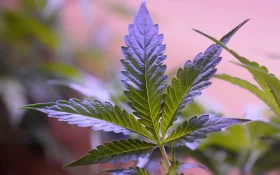A recent study has revealed that, for the first time, the number of Americans who use marijuana almost every day has surpassed the number of people who drink alcohol with the same frequency.
This shift has been 40 years in the making, as recreational marijuana use has become more mainstream and legal in nearly half of the U.S. states.
According to an analysis of national survey data, an estimated 17.7 million people reported using marijuana daily or near-daily in 2022, compared to 14.7 million daily or near-daily drinkers. In contrast, less than 1 million people said they used marijuana nearly every day in 1992, when daily pot use was at its lowest point.
Although alcohol is still more widely used overall, 2022 marked the first time that this intensive level of marijuana use surpassed daily and near-daily drinking, according to the study’s author, Jonathan Caulkins, a cannabis policy researcher at Carnegie Mellon University. Caulkins noted that “a good 40% of current cannabis users are using it daily or near daily, a pattern that is more associated with tobacco use than typical alcohol use.”
The research, published in the journal Addiction, is based on data from the highly regarded National Survey on Drug Use and Health, which provides self-reported estimates of tobacco, alcohol, and drug use in the United States. Caulkins acknowledged that the increasing public acceptance of marijuana use might lead to more people being willing to report their usage, potentially contributing to the observed increase.
As most states now allow either medical or recreational marijuana use, the federal government is considering reclassifying the drug as less dangerous, despite it remaining illegal at the federal level. In November, Florida voters will decide on a constitutional amendment that would allow recreational cannabis use.
Dr. David A. Gorelick, a psychiatry professor at the University of Maryland School of Medicine who was not involved in the study, pointed out that research shows high-frequency marijuana users are more likely to become addicted to the substance.
He also noted that the number of daily users suggests more people are at risk of developing problematic cannabis use or addiction, as well as cannabis-associated psychosis, a severe condition in which a person loses touch with reality.
The Associated Press contributed to this article.
